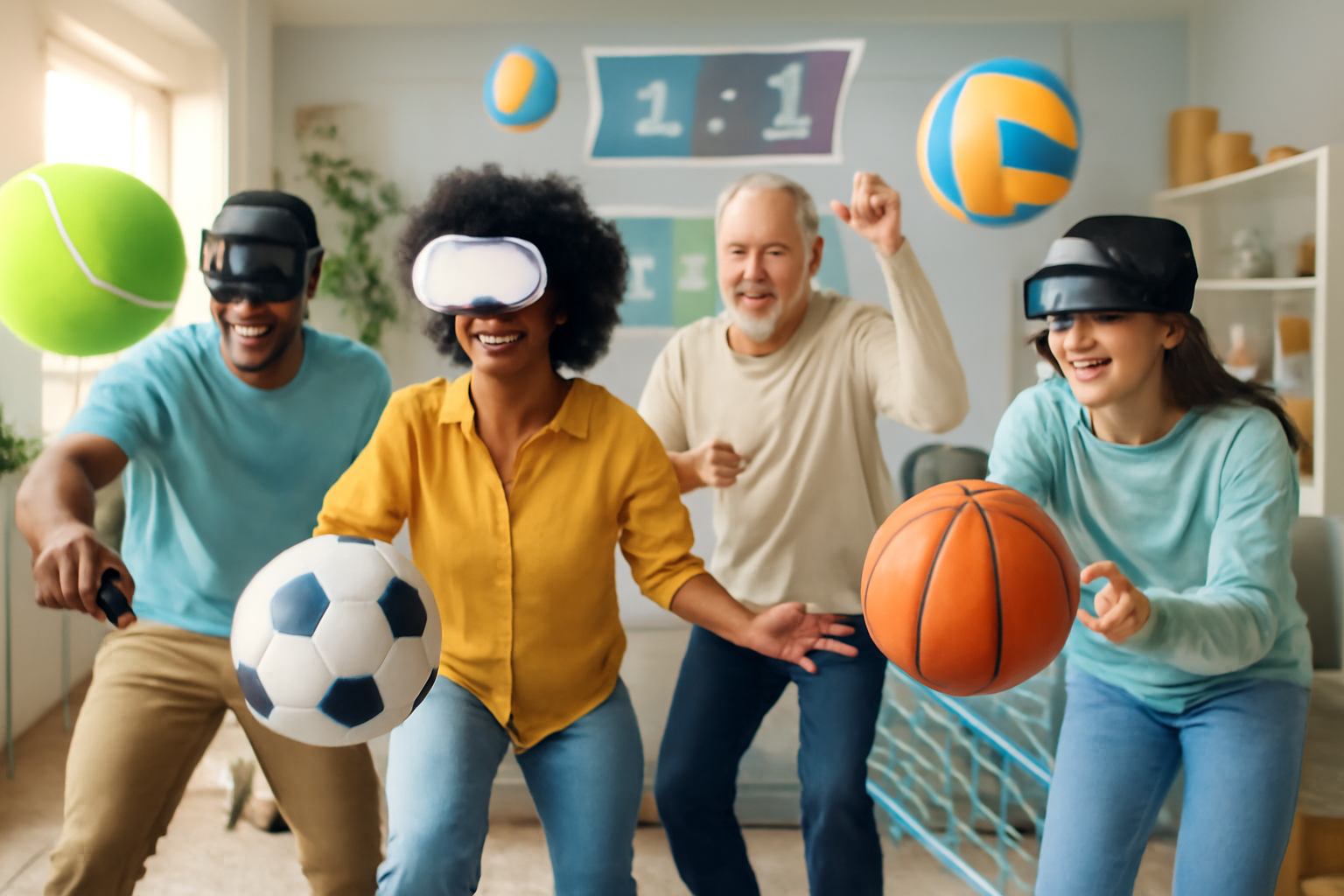For many, the idea of video games brings to mind images of solitary creatures alone in their digital worlds, not new research that finds something altogether different. New research suggests augmented reality (AR) and virtual reality (VR) sports games do quite a bit more than entertain… In fact, they are turning into powerful areas to improve sports games mental health and facilitate real social connection.
Beyond the Headset: A Safe Place to Play for Sports Games Mental Health
The AR and VR worlds are immersive and provide an experience beyond the traditional digital gaming. In VR, for example, you can swing a virtual tennis racket, shoot hoops in an imaginary basketball gym, and dance with your friends in time from thousands of miles away on their own special screens. Sports games mental health benefits are evident as AR provides interactivity and seamlessly integrates into our existing physical world; you could take a jog while passing the baton in a larger team relay race happening in a synchronous way across different cities.
AR/VR sports games are distinct because they create opportunities to turn exercise play into connected exercise play, directly impacting sports games mental health. Sharing those experiences in a different social format, regardless of physical distance, makes accessible to all.
Battling Loneliness—One Session at a Time
Isolation and loneliness seem to be a silent epidemic more so now than in recent memory, particularly because many of us were forced to disrupt our routines and sustain relationships in remote ways due to the pandemic. While joining a local soccer club or gym is not always possible—due to geography, disability, anxiety, or stigma—sports games mental health interventions via AR/VR make virtual connection easy and judgment-free.
In the study, participants noted significantly stronger feelings of belonging and support after participating in sports games mental health activities regularly. Friendly competition and the opportunity to celebrate victories or overcome setbacks offered encouragement and growth. For people who may struggle to create friendships in traditional settings, these platforms became meaningful lifelines, fostering genuine connection and relationships that can last.
Accessible, Fun, and (Surprisingly) Healthy Approaches
One often underrated strength of AR/VR sports games is sports games mental health accessibility. Joining a gaming group doesn’t require athletic skill or strong fitness. Adjustable difficulties and adaptability make these experiences inclusive for people with physical or social challenges, further expanding benefits.
Because most games focus on participation and fun rather than competition, sports games mental health programs emphasize enjoyment, reducing anxiety over outcomes. The structured yet forgiving environment helps those with anxiety or depressive symptoms take first steps back into social life via sports games mental health programs. The anonymity, control, and safety of home settings make participation less intimidating, which further supports.
Frequently Asked Questions (FAQ) –
How do AR/VR sports games help sports games mental health?
They reduce stress and anxiety through physical activity, boost endorphins, and create playful, supportive environments that foster overall well-being as part of support.
Can AR/VR games really help people feel less lonely through sports games mental health activities?
Yes! Players often form new friendships and support networks in-game, alleviating feelings of isolation and building a sense of community with sports games mental health programs.
Are these games suitable for people with disabilities?
Many AR/VR sports games are designed with accessibility in mind, allowing people of different abilities to participate, supporting inclusive sports games mental health.
Is this a substitute for therapy or medical treatment?
While AR/VR games can be a powerful supplement to sports games mental health, they are not a replacement for professional care when needed.
How can someone get started with sports games mental health benefits in AR/VR?
Choose a sports game and platform that fits your interests and needs. Most require a VR headset or a smartphone/tablet for AR, and many communities are ready to support your journey into sports games mental health!







